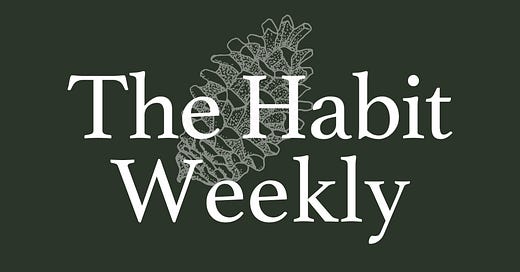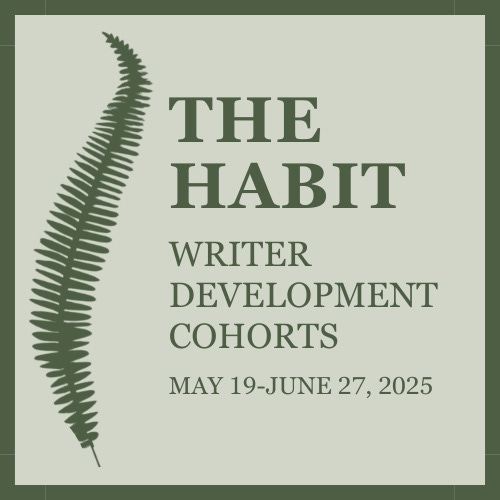What Are You Good At?
It's important to know where your strengths are, and build out from there.
One of my favorite things about teaching writing is being able to say to another writer, “You’re good at this. Did you know it?” Sometimes it’s obvious to me that a writer has an ear for dialogue, say, or a gift for sensory description, but it’s not obvious to the writer.
In writing, as in other areas of human endeavor, it is important to know what you’re good at and to build out from there. It’s natural enough to want to shore up your weaknesses. But it’s even more important to shore up your strengths.
I once had a student who described a hospital room as smelling like ham and band-aids. I thought that was just about perfect. It would have never occurred to me to identify an institutional smell as a ham-and-band-aids smell, but once I read it, I knew exactly what the writer was talking about. There were several equally evocative sensory images in the same short piece. My student seemed surprised that I was so excited about those details; she had no idea she was a natural at sensory images. She expected our conversation to focus on the fact that her dialogue wasn’t great. The dialogue wasn’t great, and we talked about that, but mostly we talked about the things she was doing well—the things that could be the basis of a distinct (and honest) voice.
Your gifts and talents are gifts to you, but more importantly they are gifts to the wider world. I have written elsewhere about the idea of thinking about your work in terms of a territory—a patch of ground that is yours to cultivate—rather than thinking in terms of your place in a hierarchy. How do you know what your “territory” is? One clue is knowing what you’re good at, what comes naturally to you.
Writers who come to me for help often think of themselves as needing help fixing what’s wrong with their writing. I completely get that. I want to fix my shortcomings too, and I think (I hope) I’ve made some progress in that regard. Even so, I hope you’ll remember this truth: you are defined by your strengths, your gifts, your talents, not by your weaknesses. This is all related to a formulation I call The Fondue Pot Principle, which can be stated as a theorem with corollaries:
Theorem: You can only give what you have—but that’s just fine.
Corollary A: When what you have to give matches up with what people need, those people feel delight, appreciation, and other good feelings.
Corollary B: With very few exceptions, people are not disappointed or angry or upset when what you have to give doesn’t match up with what they need. In fact, with very few exceptions, people have no opinion at all regarding your shortcomings.
If you’re like me, you spend a lot of energy thinking about your shortcomings. I hope it’s a relief to know that the rest of the world isn’t as interested in your shortcomings as you are. Your talents, your strengths—those are much more interesting.
A six-week online intensive for writers of memoir and creative nonfiction. Limited to 16 writers. a six-week online small-group writing intensive designed to help writers develop their unique voice, refine their ideas, strengthen their craft, and build sustainable work habits. Find out more at TheHabit.co/Cohorts.
The April Poem-A-Day challenge (go to the Habit Trails subforum on The Habit Forum).
Virtual Writing Rooms on Monday, Tuesday, Wednesday, Thursday and Friday
Starting 4/15: Creative Nonfiction Mini-Class - first week’s reading is David Foster Wallace’s essay “Shipping Out” (later published as “A Supposedly Fun Thing I’ll Never Do Again”)
There's a place for you in this vibrant community of writers. Find out more about The Habit Membership here.
Allen Levi is a good Talker.
In this episode, Allen Levi and I discuss this connections between writerly voice and the voice with which the writer speaks every day. Allen Levi is a singer-songwriter and the author of The Last Sweet Mile and Theo of Golden.
This episode is sponsored by The Habit Writer Development Cohorts. Find out more and apply for a cohort at TheHabit.co/Cohorts.








I'm new to poetry and what you say here is so helpful as I consider all the advice readily available on web today. Your thoughts ring out clearly to me.
Why is it so hard for us to do what we are good at and be ok with doing that? Meaning, it is significantly easier to identify where we lack and dwell on that. Which, ultimately, can be a fear that paralyzes instead of freedom to "move about the cabin." Thank you for this reminder that it's ok to know and do what we are good at. Maybe I needed to hear this today.